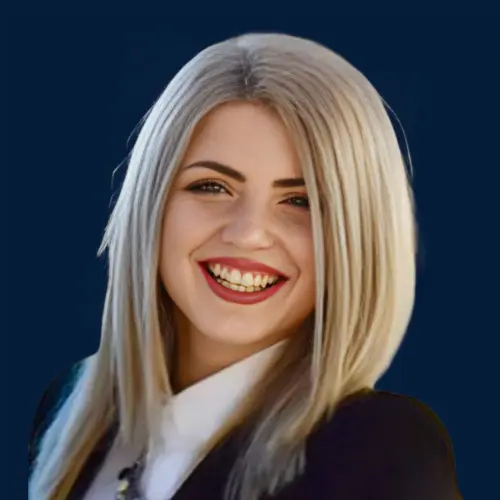EuropeActive hosted the 4th Annual FORUM for Anti-Doping in Recreational Sport on Thursday 12th November, and this year's event marked a shift away from the traditional format in order to adapt to Covid-19 restrictions.
With more than 150 delegates from around the world representing Anti-Doping Agencies, Universities, Sporting Associations, International Organisations and EU Institutions, the FORUM was heralded as a great success and demonstrated the importance of such events as an effective platform in better understanding of the prevalence and actions required in doping in recreational sport.
Session one: The FAIR+ Project
The Forum Chairman, Professor Michael McNamee and Cliff Collins, EuropeActive Programmes Director, officially opened the Forum followed by Yves Le Lostecque, Head of the Sport Unit at the European Commission. He welcomed the participants and underlined the importance of the fight against doping in recreational sport through EU funded projects in the framework of the Erasmus+ Programme. In this regard, he informed the FORUM that the European Parliament will also make available some funds next year to support this area of work. Eventually, he confirmed that the fight against doping will remain as a priority in the future Erasmus+ (2021-2027) and in the EU Workplan for Sport (2021-2024).
The first session was dedicated to the introduction of the FAIR+ Project. Cliff Collins, as project coordinator, explained the objectives of the new project and the transition from FAIR to FAIR+. Prof Werner Pitsch and Fredrik Lauritzen presented their area of work in the project, respectively “the existing prevalence of doping in recreational sport” and the “evaluation and perspective of the existing educational guidelines for coaches, trainers and instructors”.
Prof Pitsch gave an overview of the existing works regarding the prevalence of doping in recreational sport and secondly explained the methodology that will be followed. Mr Lauritzen presented the different phases of its research: 1) quantitative survey 2) quality survey 3) final report. At present, phase 1 involved 44 NADOs, 48 International Sport Federations and 10 Other Sport, fitness and Anti-Doping Organisations.
Two other Erasmus+ Projects were invited to present their work in anti-doping. Dr Lambros Lazuras from Sheffield Hallam University summarised the IMPACT project and Dr Ian Boardley from University of Birmingham gave a presentation on the outcomes of the RESPECT-Project. They both stressed the importance of collaborating across other anti-doping actions including those from the World Anti-Doping Association, the International Olympic Committee and the Council of Europe.
Session one was concluded by two keynote-speakers Dr Kelsey Erickson from USA Cycling and Dr John Gleaves who joined the Forum as a previously sanctioned recreational cyclist. Dr Erickson shared her understanding of the differences between different regulatory bodies in different countries. Dr Gleaves then gave his very personal experience and criticized the ‘one size fits all’ approach which had unintended consequences when sanctioned expected for doping violations were applied to recreational athletes.
The session ended with an intense Q&A where Herman Ram, President of of the Doping Authority in the Netherlands added that, from 1st January 2021, the WADA-CODE is going to differentiate the position of a recreational athlete.
Session two: The FAIR+ FORUM
In the afternoon session, Stephen Watkins from Rugby Football Union UK, Dr Lucienne Attard, President of the Maltese Anti-Doping Committee and Herman Ram discussed the role of Anti-Doping Agencies in recreational sport and where it was appropriate to ‘draw a line’ with their intervention in recreational sport.
Panellists agreed that the main role of NADOs should be education campaign for amateur athletes which can be possible if they are able to establish a fruitful collaboration with the various sport organisations and federations in the territories. There was also a general agreement that anti-doping testing was not generally the way to go for recreational athlete.
In the second panel of session two Prof. Ask Vest Christiansen, from Aarhus University and FAIR+ Project Partner, Dr April Henning from University of Stirling, Colin Allen from UK Anti-Doping and Dr Sergio Lara-Bercial from the International Council for Coaching Excellence shared their views on the definitions of recreational sport and athlete. Whilst there were divergent views on the approach and a recognition that to conclude a single definition would be problematic, it was accepted that for policy-makers a concrete definition was necessary in a number of applications and contexts. Prof. McNamee led the subsequent Q&A session with the FORUM participants with a general conclusion that this was a debate that would continue.
The FORUM ended with EuropeActive Director of Programmes Cliff Collins and KU Leuven Professor Michael McNamee summarising the main ideas of the day and extending an invitation to all delegates to join the 5th edition of the Forum in November 2021 which would be planned as a hybrid event.
The Forum for Anti-doping in Recreational Sport project could not have been organised without the contributions of many organisations, individuals and experts in the field of anti-doping:
Prof Michael McNamee (KU Leuven)
Erik Duiven (Doping Authority Netherlands)
Fredrik Lauritzen (Anti-Doping Authority Norway)
Prof. Ask Vest Christiansen (Aarhus University)
Dr Michael Petrou (Cyprus Anti-Doping Authority)
Prof Fabio Lucidi and Andrea Chirico (University of Rome)
Prof Werner Pitsch and Monika Frenger (European Institute for Socioeconomics)
Gaetan Garcia (TAFISA)
Prof Susan Backhouse (Leeds Beckett University)
The EuropeActive EU project team


